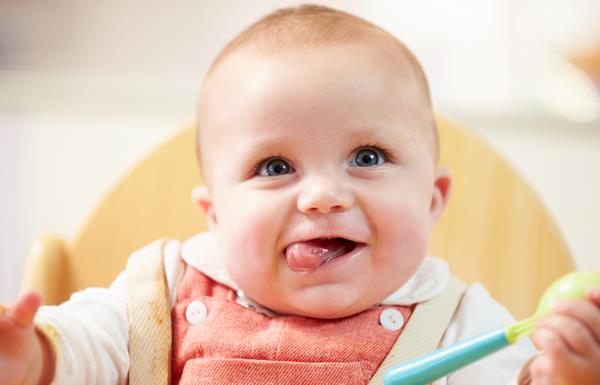Rich in calcium and minerals, seafood is an indispensable food in a healthy baby's diet. However, many mothers are hesitant to feed their babies because they worry that their children may have allergies
content
Nutrition for 7-month-old babies: Choosing the right seafood
Note when feeding your baby seafood
Seafood including fish, shrimp, crab, squid ... has long been classified as a food group with high risk of allergy, especially for children. Therefore, although the nutritional value of seafood is high, many mothers are still afraid to give their baby seafood . In fact, according to experts, the site of allergy does not depend on the child's exposure to the allergen a few months early or late. If the family has a history of food allergies, mothers can let the baby try that food later, when the baby is older and the digestive and immune systems are stronger. Thus, the effect of allergies on the child will be reduced.

Whether your baby has a seafood allergy or not depends on the location, no matter when the mother introduces the food to the baby.
For families without a history of allergy, experts recommend that mothers should add seafood to their baby's nutritional menu, right from the moment the baby is 7 months old. Of course, according to a standard "dosage".
Children aged 7-12 months can eat about 20 g of fish and shrimp each meal, and 3-4 times / week. The child's digestive system is still quite young at this time, the mother should pay attention to remove the fish bones, shrimp shells and puree for the baby.
Children from 1-3 years old can eat 30-40 g of seafood per meal.
- From 4 years old and up, each baby can eat 50-60 g of seafood. At this time, the baby can "cup" delicious shrimp shells too!
Nutrition for 7-month-old babies: Choosing the right seafood
In addition to the nutritional values such as calcium, fat, and trace elements, seafood also contains a certain amount of mercury. Consuming too much mercury can seriously affect the nervous system, especially in babies and young children. Therefore, when feeding your baby seafood, the mother must be very careful. Not all seafood is good for your baby's health.
- Small shrimp and fish with low mercury content, will not affect if used in reasonable doses. Of all fish, the mercury content in salmon is the lowest. Moreover, salmon also contains many omega-3s, which are very good for children's brain development.
- Nutrition menu for babies should be limited to large, long-lived fish, because the mercury content in these fish is quite high. For example: mackerel, tuna, shark, swordfish, tilefish, king crab ...
Note when feeding your baby seafood
- The first time you feed your baby seafood, the mother should only feed the baby in small amounts. Observe the baby's symptoms while eating, if anything is wrong, stop and take the baby to the hospital immediately.
- The nutritional value of seafood will be significantly reduced if the mother gives the baby fruit right after eating seafood. The baby may even have digestive stimulation, leading to vomiting, indigestion, and abdominal pain. Ideally, fruit should be eaten 1-2 hours before or 1-2 hours after eating.
- Children from 7 months old can eat all kinds of fish, small shrimp that have been peeled, bone and pureed. With other types of seafood such as clams, mussels ..., mothers should wait until the baby is 1 year old.
- Choose to buy seafood or any food for your baby, mothers should also pay attention to freshness, deliciousness, clear origin.

Top foods to avoid when weaning At the end of 2008, pediatric experts have listed a "black list" of foods to avoid when weaning babies. However, in 2012, the experts changed this list again, and a lot of food has "fallen out". With MarryBaby update the top foods that should not be exported ...













